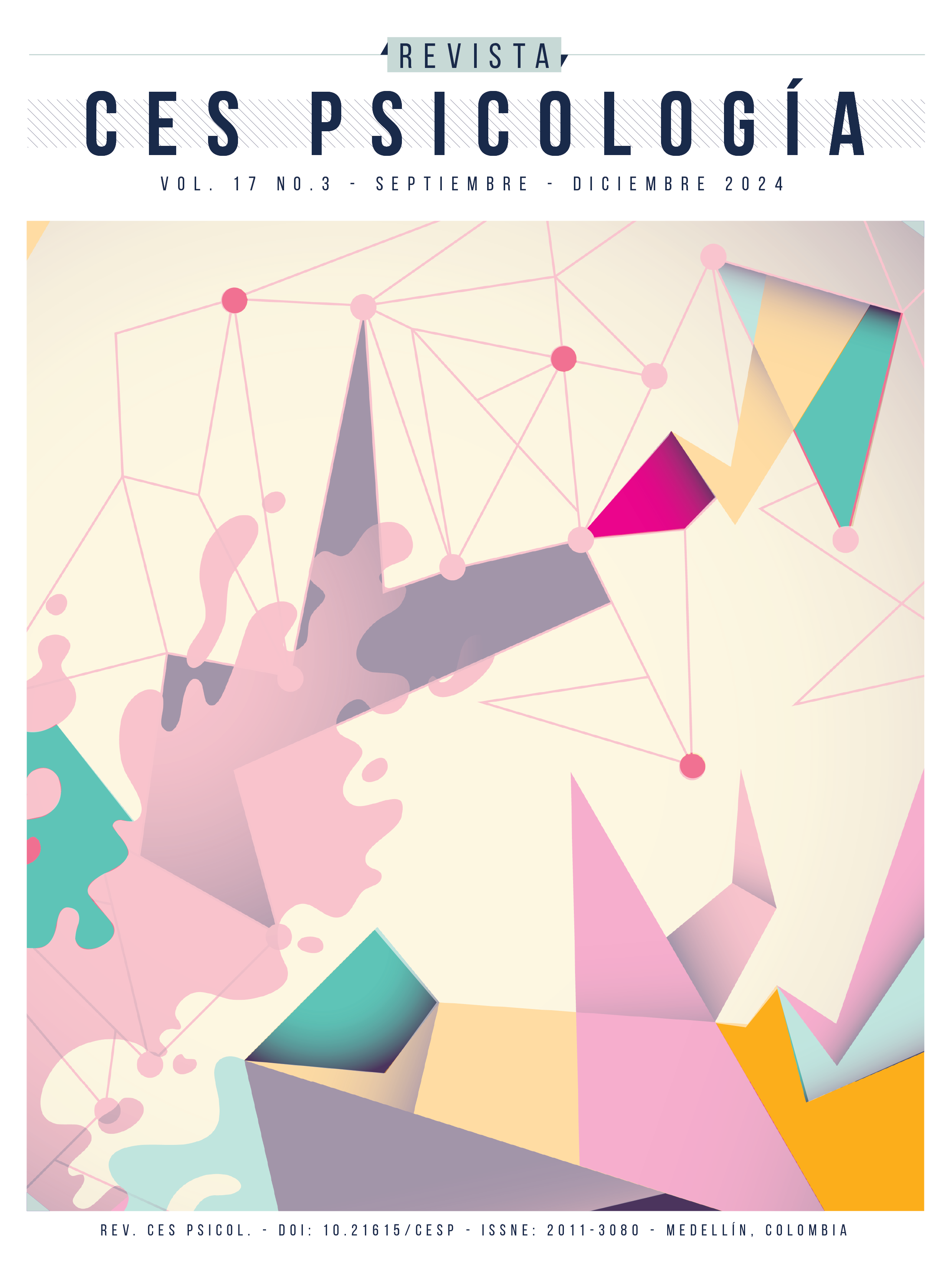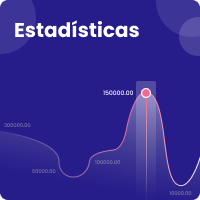An Investigation of Subjective Metacognitive Awareness and Objective Absolute Monitoring Accuracy among Undergraduate Students from China, Colombia, Spain, and the U.S.: The Role of Culture
DOI:
https://doi.org/10.21615/cesp.7303Palavras-chave:
Absolute Monitoring Accuracy, Culture, Metacognition, Metacognitive Awareness Inventory, Self-Regulated LearningResumo
Metacognition is understood as the knowledge and regulation of one’s own cognitive activity that deals with one’s agency over mental processes in a conscious and deliberate way. However, the role culture plays on individuals’ experiences of metacognition and metacognitive awareness is not well understood. Thus, the present study explored the influence of culture on self-report metacognitive awareness (via the Metacognitive Awareness Inventory) and objective absolute metacognitive monitoring accuracy (i.e., a comparison of individuals’ confidence in performance judgments against actual performance) across three academic domains (vocabulary, probabilities, and paper folding [assesses visual-spatial reasoning]) in a sample of 366 undergraduate students from four countries (China, Colombia, Spain, and the U.S.). Results revealed that metacognitive awareness is not a universally conceptualized construct. Not only were correlational patterns distinct across cultures, but there were significant differences among the four cultures in both a finer- and coarser-grained analysis. Further, results of objective absolute monitoring accuracy indicated that, incongruent with the self-report findings, participants from the Chinese sample exhibited significantly poorer absolute monitoring accuracy in vocabulary and paper folding, but that participants from all four countries manifested similar absolute monitoring accuracy in a probabilities task. These findings have profound repercussions for how culture influences theory, applied research, measurement, and practice regarding metacognitive awareness and absolute metacognitive monitoring accuracy.
Downloads
Referências
Akman, O., & Alagöz, B. (2018). Relation between metacognitive awareness and participation to class discussion of university students. Universal Journal of Educational Research, 6(1), 11-24. https://doi.org/10.13189/ujer.2018.060102
Bembenutty, H. (2007). Self-regulation of learning and academic delay of gratification: Gender and ethnic differences among college students. Journal of Advanced Academics, 18, 586-616. https://doi.org/10.4219/jaa-2007-553
Bol, L., Campbell, K.D., Perez, T., & Yen, C. (2016). The effects of self-regulated learning training on community college students' metacognition and achievement in developmental math courses. Community College Journal of Research and Practice, 40, 480–495. https://doi.org/10.1080/10668926.2015.1068718
Cohen, J. (1988). Statistical power analysis for the behavioral sciences (2nd ed.). Lawrence Earlbaum & Associates. https://doi.org/10.4324/9780203771587
Craig, K., Hale, D., Grainger, C., & Stewart, M. E. (2020). Evaluating metacognitive self-reports: Systematic reviews of the value of self-report in metacognitive research. Metacognition Learning 15, 155–213. https://doi.org/10.1007/s11409-020-09222-y
Cvencek, D., Nasir, N. S., O’Connor, K., Wishcnia, S., & Meltzoff, A. N. (2015). The development of math-race stereotypes: “They say Chinese people are the best at math.” Journal of Research on Adolescence, 25(4), 630-637. https://doi.org/10.1111/jora.12151
Dinsmore, D. L., Alexander, P. A., & Loughlin, S. M. (2008). Focusing the conceptual lens on metacognition, self-regulation, and self-regulated learning. Educational Psychology Review, 20(4), 391-409. https://doi.org/10.1007/s10648-008-9083-6
Dunlosky, J., Rawson, K. A., & Middleton, E. L. (2005). What constrains the accuracy of metacomprehension judgments? Testing the transfer-appropriate-monitoring and accessibility hypotheses. Journal of Memory and Language, 52(4), 551-565. https://psycnet.apa.org/doi/10.1016/j.jml.2005.01.011
Efklides, A. (2011). Interactions of metacognition with motivation and affect in self-regulated learning: The MASRL model. Educational Psychologist, 46(1), 6-25. https://doi.org/10.1080/00461520.2011.538645
Ekstrom, R. B., French, J. W., & Harman, H. H. (1976). Manual for kit of factor-referenced cognitive tests. Educational Testing Service.
Favieri, A. G. (2013). General metacognitive strategies inventory (GMSI) and the metacognitive integrals strategies inventory (MISI). Electronic Journal of Research in Educational Psychology, 11(3), 831–850. https://doi.org/10.14204/ejrep.31.13067
Flavell, J. H. (1979). Metacognition and cognitive monitoring: A new area of cognitive–developmental inquiry. American Psychologist, 34(10), 906–911. https://doi.org/10.1037/0003-066X.34.10.906
Flavell, J. H., Green, F. L., Flavell, E. R., & Grossman, J. B. (1997). The development of children's knowledge about inner speech. Child Development, 68(1), 39–47. https://doi.org/10.2307/1131923
Heyes, C., Bang, D., Shea, N., Frith, C. D., & Fleming, S. M. (2020). Knowing ourselves together: The cultural origins of metacognition. Trends in Cognitive Sciences, 24(5), 349–362. https://doi.org/10.1016/j.tics.2020.02.007
Gascoine, L., Higgins, S., & Wall, K. (2017). The assessment of metacognition in children aged 4–16 years: A systematic review. Review of Education, 5(1), 3-57. https://doi.org/10.1002/rev3.3077
Glenberg, A. M., Sanocki, T., Epstein, W., & Morris, C. (1987). Enhancing calibration of comprehension. Journal of Experimental Psychology: General, 116(2), 119–136. https://doi.org/10.1037/0096-3445.116.2.119
Gutierrez, A. P., Schraw, G., Kuch, F., & Richmond, A. S. (2016). A two-process model of metacognitive monitoring: Evidence for distinct accuracy and error factors. Learning and Instruction, 44, 1-10. https://doi.org/10.1016/j.learninstruc.2016.02.006
Gutierrez de Blume, A. P. (2017). The effects of strategy training and an extrinsic incentive on fourth- and fifth- grade students’ performance, confidence, and calibration accuracy. Cogent Education, 4, 1-17. https://doi.org/10.1080/2331186X.2017.1314652
Gutierrez de Blume, A. P. (2020). Effect of the instruction of cognitive strategies on the accuracy of metacognitive monitoring of U.S. college students. Tesis Psicológica, 15(2), 166-186. https://doi.org/10.37511/tesis.v15n2a9
Gutierrez de Blume, A. P., & Montoya Londoño, D. M. (2021). Validation and examination of the factor structure of the Metacognitive Awareness Inventory (MAI) in Colombian university students. Psicogente, 24(46), 1-29. https://doi.org/10.17081/psico.24.46.4881
Gutierrez de Blume, A. P., Montoya Londoño, D. M., Daset, L., Cuadro, A., Molina Delgado, M., Morán Núñez, O., García de la Cadena, C., Beltrán Navarro, M. B., Arias Trejo, N., Ramirez Balmaceda, A., Jiménez Rodríguez, V., Puente Ferreras, A., Urquijo, S., Arias, W. L., Rivera, L. I., Schulmeyer, M., & Rivera-Sanchez, J. (2023). Normative data and standardization of an international protocol for the evaluation of metacognition in Spanish-speaking university students: A cross-cultural analysis. Metacognition and Learning, 18(2), 495-526. https://doi.org/10.1007/s11409-023-09338-x
Gutierrez de Blume, A. P., Montoya Londoño, D. M., Jiménez Rodríguez, V., Morán Núñez, O., Cuadro, A., Daset, L., Molina Delgado, M., García de la Cadena, C., Beltrán Navarro, M. B., Puente Ferreras, A., Urquijo, S., & Arias, W. L. (in press). Psychometric properties of the Metacognitive Awareness Inventory (MAI): Standardization to an international Spanish with 12 countries. Metacognition and Learning. Advance online publication.
Händel, M., Harder, B., & Dresel, M. (2020). Enhanced monitoring accuracy and test performance: Incremental effects of judgment training over and above repeated testing. Learning and Instruction, 65, 1-9. https://doi.org/10.1016/j.learninstruc.2019.101245
Jaeger, A. J., & Wiley, J. (2014). Do illustrations help or harm metacomprehension accuracy? Learning and Instruction, 34, 58-73. https://doi.org/10.1016/j.learninstruc.2014.08.002
Karabenick, S. A., & Newman, R. S. (Eds.). (2006). Help seeking in academic setting: Goals, groups, and contexts. Lawrence Erlbaum Associates Publishers.
Lima Filho, R. N., & Bruni, A. L. (2015). Metacognitive awareness inventory: Translation and validation from a confirmatory analysis. Psicologia: Ciência e Profissão, 35(4), 1275-1293. https://doi.org/10.1590/1982-3703002292013
Magno, C. (2010). The role of metacognitive skills in developing critical thinking. Metacognition and Learning, 5, 137–156. https://doi.org/10.1007/s11409-010-9054-4
Marshalek, B., Lohman, D. F., & Snow, R. E. (1983). The complexity continuum in the radex and hierarchical models of intelligence. Intelligence, 7, 107-127. https://doi.org/10.1016/0160-2896(83)90023-5
Meher, V., & Baral, R. (2020). Cultural adaptation and validation of the Metacognitive Awareness Inventory for higher secondary school students of Odisha. i-Manager's Journal on Educational Psychology, 14(2), 34-43. https://doi.org/10.26634/jpsy.14.2.17631
Miller, T. M., & Geraci, L. (2011). Unskilled but aware: Reinterpreting overconfidence in low-performing students. Journal of Experimental Psychology: Learning, Memory, and Cognition, 37(2), 502–506. https://doi.org/10.1037/a0021802
Morphew, J.W. (2021). Changes in metacognitive monitoring accuracy in an introductory physics course. Metacognition Learning, 16, 89–111. https://doi.org/10.1007/s11409-020-09239-3
Negretti, R. (2012). Metacognition in student academic writing: A longitudinal study of metacognitive awareness and its relation to task perception, self-regulation, and evaluation of performance. Written Communication, 29(2), 142-179. https://doi.org/10.1177%2F0741088312438529
Ozturk, N. (2017). Assessing metacognition: Theory and practices. International Journal of Assessment Tools in Education, 4(2), 134-148. https://doi.org/10.21449/ijate.298299
Prieto, A. J. (1992). A method for translation of instruments to other languages. Adult Education Quarterly, 43(1), 1-14. https://doi.org/10.1177/0741713692043001001
Rao, G. S. R., & Jaiswal, A. K. (2020). Evaluation and psychometric adequacy of Metacognitive Awareness Inventory in Indian sample. Indian Journal of Positive Psychology, 11(2), 64-70. https://www.proquest.com/scholarly-journals/evaluation-psychometric-adequacy-metacognitive/docview/2445574885/se-2
Schraw, G. (2000). Assessing metacognition: Implications of the Buros symposium. In G. Schraw & J. C. Impara (Eds.), Issues in the measurement of metacognition (pp. 297-321). Buros Center for Testing.
Schraw, G. (2009). Measuring metacognitive judgments. In D. J. Hacker, J. Dunlosky, & A. C. Graesser (Eds.), Handbook of metacognition in education (pp. 415-429). Routledge/Taylor & Francis Group.
Schraw, G., & Dennison, R. S. (1994). Assessing metacognitive awareness. Contemporary Educational Psychology, 19(4), 460–475. https://doi.org/10.1006/ceps.1994.1033
Schraw, G., & Moshman, D. (1995). Metacognitive theories. Educational Psychology Review, 7(4), 351–371. https://doi.org/10.1007/BF02212307
Stankov, L., Lee, J., Luo, W., & Hogan, D. J. (2012). Confidence: A better predictor of academic achievement than self-efficacy, self-concept and anxiety? Learning and Individual Differences, 22(6), 747–758. https://doi.org/10.1016/j.lindif.2012.05.013
Stankov, L., Morony, S., & Lee, Y. P. (2014). Confidence: The best non-cognitive predictor of academic achievement? Educational Psychology, 34(1), 9–28. https://doi.org/10.1080/01443410.2013.814194
Tabachnick, B. G., & Fidell, L. S. (2019). Using multivariate statistics (7th ed.). Pearson. https://www.pearson.com/us/higher-education/program/Tabachnick-Using-Multivariate-Statistics-7th-Edition/PGM2458367.html
Thiede, K. W., & Dunlosky, J. (1994). Delaying students' metacognitive monitoring improves their accuracy in predicting their recognition performance. Journal of Educational Psychology, 86(2), 290–302. https://doi.org/10.1037/0022-0663.86.2.290
Thomas, G. P. (2016). Metacognition in science education: Considering cultural and contextual orientations. Alberta Science Education Journal, 44(2), 4-15.
Trytten, D. A., Lowe, A. W., & Walden S. E. (2014). “Asians are good at math. What an awful stereotype”: The model minority stereotype’s impact on Asian American engineering students. Journal of Engineering Education, 101(3), 436-468. https://doi.org/10.1002/j.2168-9830.2012.tb00057.x
Turan, S., Demirel, O., & Sayek, I. (2009). Metacognitive awareness and self-regulated learning skills of medical students in different medical curricula. Medical Teacher, 31(10), e477-e483. https://doi.org/10.3109/01421590903193521
Urban, K., & Urban, M. (2021). Anchoring Effect of Performance Feedback on Accuracy of Metacognitive Monitoring in Preschool Children. Europe's Journal of Psychology, 17(1), 104–118. https://doi.org/10.5964/ejop.2397
Veenman, M. V. J., & Spaans, M. A. (2005). Relation between intellectual and metacognitive skills: Age and task differences. Learning and Individual Differences, 15(2), 159–176. https://doi.org/10.1016/j.lindif.2004.12.001
Vygotsky, L. S. (1978). Mind in society: The development of higher psychological processes. Harvard University Press. https://www.hup.harvard.edu/catalog.php?isbn=9780674576292
Wang, Y. & Sperling, R. A. (2021). Understanding and supporting Chinese middle schoolers’ monitoring accuracy in mathematics. Metacognition and Learning, 16, 57–88. https://doi.org/10.1007/s11409-020-09238-4
Winne, P. H., & Hadwin, A. F. (2008). The weave of motivation and self-regulated learning. In D. H. Schunk & B. J. Zimmerman (Eds.), Motivation and self-regulated learning: Theory, research, and applications (pp. 297–314). Lawrence Erlbaum. https://www.routledge.com/Motivation-and-Self-Regulated-Learning-Theory-Research-and-Applications/Schunk-Zimmerman/p/book/9780805858983
Xethakis, L. (2020). The psychometric properties of the Metacognitive Awareness Inventory in the Japanese EFL context. https://www.researchgate.net/profile/Larry-Xethakis-3/publication/339998616_The_Psychometric_Properties_of_the_Metacognitive_Awareness_Inventory_in_the_Japanese_EFL_Context/links/5ec0f545458515626cace7b1/The-Psychometric-Properties-of-the-Metacognitive-Awareness-Inventory-in-the-Japanese-EFL-Context.pdf
Downloads
Publicado
Como Citar
Edição
Seção
Licença
Copyright (c) 2024 Antonio Gutierrez de Blume, Ying Wang, Hongcui Du, Diana Marcela Montoya Londoño

Este trabalho está licenciado sob uma licença Creative Commons Attribution-NonCommercial-ShareAlike 4.0 International License.
Revista CES Psicología ISSN 2011 3080
Facultad de Psicología, Universidad CES Primera edición 2008. Última actualización Mayo 29 de 2024. Todos los derechos reservados. Hecho el depósito legal que exige la ley.
Se autoriza la reproducción total o parcial de los artículos citando la fuente y el autor. This publication may be reproduced by mentioning the source and the authors.



